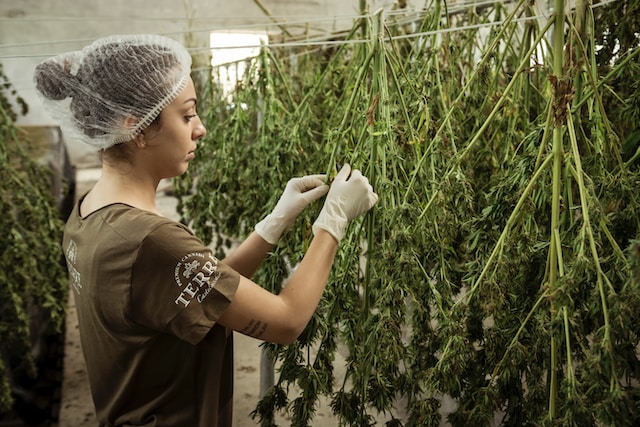Navigating Cannabis Dust Hazards: Safety Measures and Awareness
Introduction: Unveiling the Hazards of Cannabis Dust Exposure.
Recently, the cannabis industry has witnessed tragic incidents involving workers exposed to ‘cannabis dust.’ There are a lot of unknowns about the hazards of cannabis dust:
Could the hazards be pesticides applied to the plant?
Could it be a part of the plant’s resin or terpenes?
We just don’t have all the answers.
The Hidden Dangers: Understanding Cannabis Dust Allergies
What we do know is that some people have allergic sensitization and reactions to exposure of the plant and its products. The American Academy of Allergy Asthma & Immunology describes the allergy this way:
“The symptoms of marijuana allergy include many clinical manifestations depending on how a person was exposed. Contact or touching the plant can result in breaking out in rashes, hives, or swellings called angioedema. Breathing or inhaling marijuana allergens can result in nasal or ocular or eye allergy symptoms. This includes runny nose, sneezing, itching, and swelling and watering eyes. Asthma with the development of wheezing and shortness of breath also can occur. Anaphylaxis has also been reported.”
There is no standard way yet to test a person for these symptoms, which means cannabis businesses have a responsibility to be aware of this hazard and control it to the best of their abilities.

Navigating Responsibilities and Protecting Cannabis Industry Workers
The OSH Act of 1970 states: Each employer shall furnish to each of his employees employment and a place of employment which are free from recognized hazards that are causing or are likely to cause death or serious physical harm to his employees;
What this means for cannabis operators in the US is that cannabis dust is now a “recognized hazard” and they have a responsibility to control it. The best way to control a hazard is to eliminate it, but in many cases elimination is not an option.
Safeguarding Against Cannabis Dust Hazards
If you cannot eliminate or substitute the hazard for something less hazardous the next most effective way to control a hazard is through engineering controls. Engineering controls are something built to shield employees from the hazard. The most effective engineering control to minimize the hazard of cannabis dust inhalation is proper ventilation and filtration of the air where this dust occurs like harvesting, trimming, and joint rolling areas.
After elimination (or substitution) and engineering controls the next most effective way to control a hazard is through work practices. It should be standard practice to educate all cannabis workers on the symptoms of this allergy and encourage employees to report these symptoms as early as possible. Once it is known an employee has these reactions it is up to the business to remove the employee from the dust either by rotating the employee into another job or area.
The Final Defense: Equipping Personal Protective Equipment
Finally, after all the other appropriate controls are used Personal Protective Equipment (PPE) then should be used. PPE such as gloves, protective clothing, and potentially the use of a respirator (i.e. N-95) to create a barrier between the employee and the dust. Employers should be aware that if respirators are used they will need to write a formal Respiratory Protection Program to remain OSHA compliant.
Safeguarding Your Workers & Remaining Compliant
As the cannabis industry grapples with the complexities of dust-related hazards, the imperative of proactive safety measures becomes clear. From robust engineering controls to comprehensive educational initiatives, businesses must prioritize workforce well-being. Amid the evolving landscape, compliance stands as a paramount safeguard.
ICS Consulting specializes in Compliance based services, such as Third-Party State Regulatory Audits, State and Local License Application Support, Technical Writing, Standard Operating Procedures Development, Compliance Operations Training, Employee Retention Solutions, and Employee Onboarding. For more information on how ICS Consulting Service can help your Cannabis Business, book a free 30-minute consult and we'll help you map out your next steps to be successful in the Regulated Cannabis Industry
